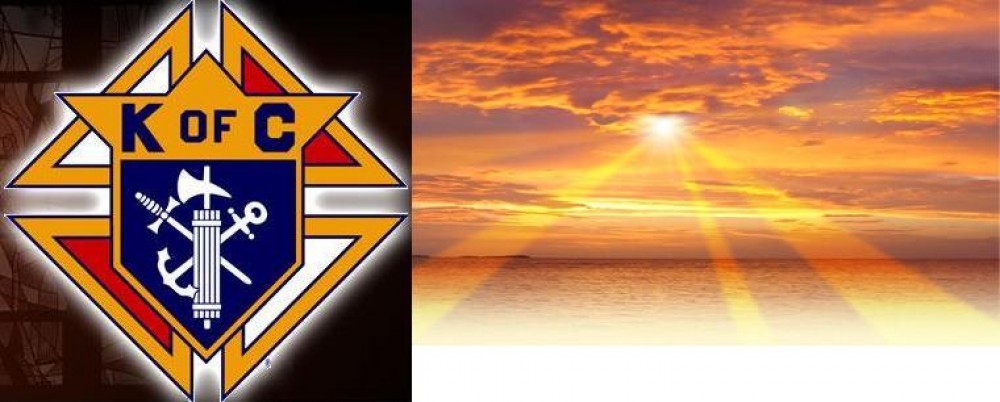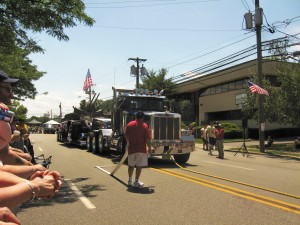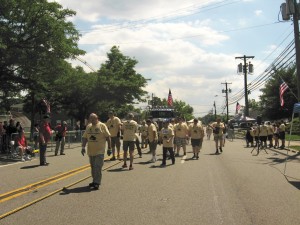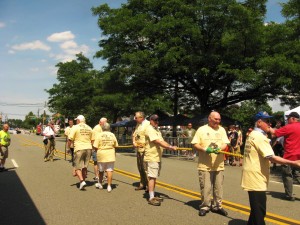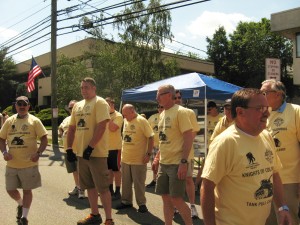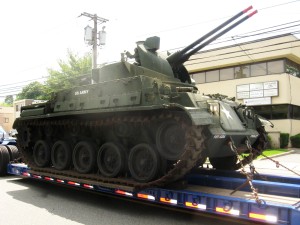Father Francis lived upstairs in the huge Ringling Mansion and collected rent from us once a month with a smile and usually something funny. Well he is still around and living in Beacon, NY.
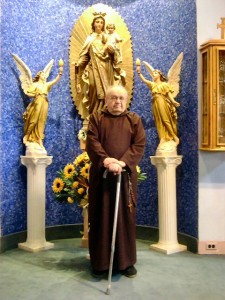
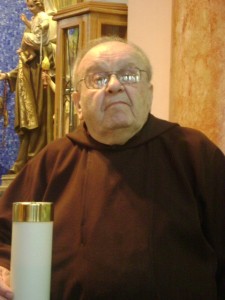
Father Francis Z. Majewski’s Story
A 69th Anniversary of Poles Deportation To Siberia
February 10, 1940, was an exceptionally cold winter day with deep snow at least five-feet deep. I was 10-years-old then and with my younger brother was on the way to the village school of Kociubinczyki, situated within the boundaries of county Koziebrodzki-Giuchowski-Strzembosz and its possessions. The distance to the school was 6 or 7 miles from our forest ranch known as Anielowka. In October 1939, the school became Soviet-Ukrainian because Poland ceased to exist as an independent state and was divided between Germany and Soviet Russia.
On our way to school, Soviet Militia men traveling in the direction to our ranch stopped us, and took us along with them. My mother was alone at home and frightened when she opened the door for these Soviet activists. Our dad had been supervising the cutting of timber in the nearby forest since early in the morning. They sent a messenger to the forest who brought dad home and then arrested him there. Mother was told to pack some things within two hours. Then we were supposed to leave for our hometown of Husiatyn, 18 miles away. On the way we (my brother and I) passed by our home with our family (parents) standing out front, but the Militia Officer ordered us to move forward to the railway station to board a freight train waiting to pick up hundreds of Poles from the district of Kopyczynce. We were certain that we are being deported to the Soviet Union and even to Siberia.
After two weeks of burdensome travel, our train stopped in a wooded area covered with at least six feet of snow. It was a region of Altai in central Siberia. We came to a place of several barracks and 15 families were assigned to each barrack. There were no beds, only bunks. At night we were invaded by hundreds of bed bugs which crawled out from the walls to suck our blood. In the morning, after interviewing all adults, the Militia agent yelled that we were actually imprisoned and no one could leave the barracks without a special permit. In reality there was no way to go anywhere as woods completely surrounded us. The Militia agents who were guarding us screamed that we were here to stay until our final days (death).
Hungry and in extremely cold weather, all men were forced to go into the woods to cut pine trees. The women followed them to pull the trees to the nearest road. In the spring and during a short summer, men would tap the pines with stents while women would fasten clay cups to catch the sap. Each woman was expected to collect 40 buckets of sap per day. But it was practically impossible because the sap flowed very slowly.
Thus we survived until October 1941, when all of a sudden a Soviet Militia agent announced that (due to the agreement between Polish and Russian governments) all Poles are granted amnesty, and as free people, may go anywhere in the Soviet Union. Consequently, we prepared to leave Siberia as soon as possible. We walked at least 20 miles to the nearest railway station and boarded a freight train heading South to Uzbekistan. It was already spring when we arrived there and without our knowing what kind of living conditions awaited us. The harsh reality was that the conditions were even worse than those in Siberia and we were actually starving.
We were somewhat relieved since the Polish Army (in exile) was in the process of organization, but we did not receive any help and so we were temporarily resettled in various collective farms to gather cotton. We started to experience very hard times, as there was no food or clean water; people and animals drank from the same muddy wells. The Uzbeks could not help us either for they also experienced hunger.
Our living quarters were under the same roof with sheep and donkeys. Any hygiene was completely lacking. Lice were crawling all over us with the majority of us suffering from typhoid, pneumonia and dysentery. I contracted two kinds of typhoid and pneumonia infections within two months. There was no medication of any kind. People were dying from hunger and infectious diseases. At last came April 1942 and we reached the Polish Military Outpost at Kenimech, a small town in Uzbekistan. My father had left us on the cotton farm and volunteered to join the Polish Infantry Division in the area. My mother received employment in the Polish military hospital laundry. Infectious diseases were raging: at least 20 soldiers died daily.
My mother would bring to us the leftovers of their meals and soon I became sick with typhoid and diarrhea. Mother placed me in a military hospital in the same bed with another unconscious boy who died during the night. When my mother checked me out from the hospital I could not stand on my feet for several days because of extreme exhaustion. After having regained some strength, my brother, and I too, were told that we were assigned to receive the Sacrament of Confirmation from Bishop Jozef Gawlina of the Polish Army who arrived from London for this purpose. Over one thousand soldiers and teenagers were confirmed in the Uzbeki desert near Kenimech. From now on we were quite sure that in a short while we would finally leave the Soviet Union to follow Polish soldiers to the Middle East through Persia (Iran), Iraq and Palestine all the way to North Africa to fight Hitler’s army at Tobruk (Libya).
However, as we were preparing to leave Uzbekistan, we encountered a very serious impediment at the railway station in Kermine. After we had already boarded the train to take us to the Caspian Sea port of Krasnowodzk, the Soviet military police were checking the documents of all Polish passengers. When the agent came to our carriage, he wanted to see the Soviet document issued to us in Siberia that entitled us to amnesty. Mother did not have this document because my father, upon entering the Polish Army, took it with him. The Polish Military authorities demanded this particular document, which showed our individual names, as proof that we were subject to amnesty. My mother’s Polish I.D. was insufficient for the Soviet agent. So we were forced to leave the train. With tears and cries we felt completely abandoned especially since it was in fact the last transport scheduled to depart from Soviet Uzbekistan. Our despair was immediately alleviated because my mother found out that there was still a Liquidation Commission in Kermine to transfer the Polish military outpost over to the Soviet authorities. Mother hastened to beg the Commission for help.
The personnel consisting of Colonel Januse, Captain Szober and their aid Zofia Turska offered my mother a position of cook which my mother accepted with great joy. When Colonel Janusz found out what happened to us at the station he immediately issued a substitute document testifying that we were a Polish military family. Thanks to the Commission we were able to leave with it for the port of Krasnowodzk and from there across the Caspian Sea for Persia (Iran).
As we arrived in the Iranian port of Pahlevi we saw a huge sign erected over the gate with white and red letterings WELCOME TO FREEDOM! On either side of the gate there stood military aids distributing boiled eggs and hot milk to newly arrived Poles fro the Soviet Union.
Right away we were accommodated in military tents equipped with showers and disinfectants. Upon leaving the showers we threw out our lice-infested clothes and received the new ones donated by the American Relief Service. In March 1943 we finally left Tehran for Ahwaz and from there for Karachi in Pakistan. In July of the same year, we were on the Indian Ocean on the way to British East Africa, to several refugee camps in Northern and Southern Rhodesia. Suddenly the ships loudspeakers announced in Polish from the BBC in London, a most unexpected information that General W. Sikorski, the Commander-in-Chief of the Polish Army, perished in a tragic plane crash over Gibraltar. An immense sadness befell all of us and everybody was crying, because it was the General who liberated us from the Soviet yoke.
I spent thirteen years in Africa: five years in Zambia and Zimbabwe and eight years in South Africa. My mother died in Zambia and is buried in Lusaka. In 1956 I decided to enter the Order of Capuchin Friars in U.S.A. After the completion of theological studies, I was ordained to the priesthood in 1964. Since I could not return to a Poland occupied by a Communist regime, and also since my hometown remained in Eastern Poland that had been annexed by the Soviet Union; I chose to stay in America and continued to be a perpetual refugee.
Fr. Francis Z. Majewski, O.F.M., Cap.
